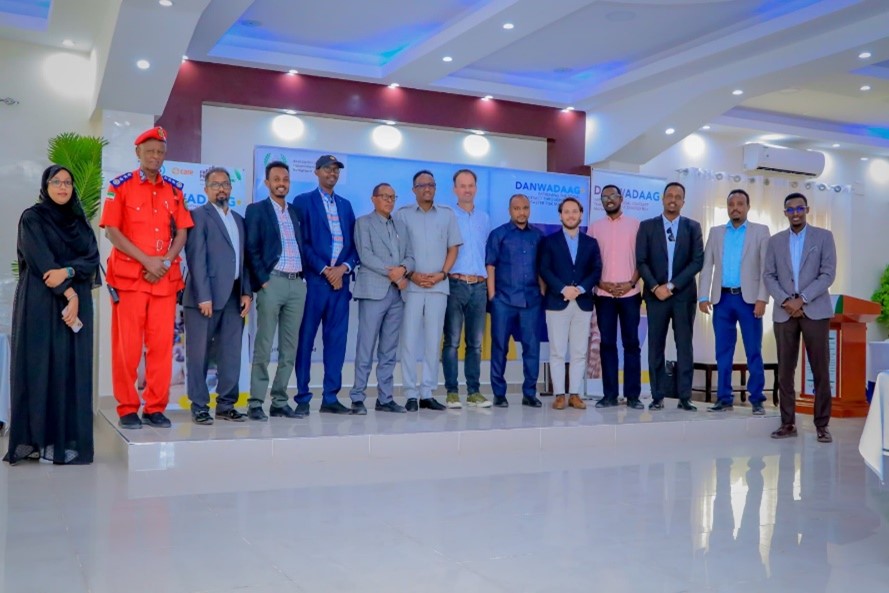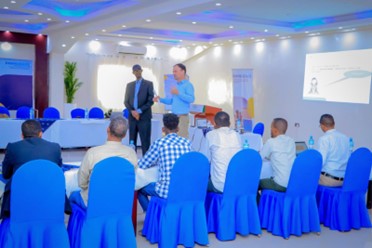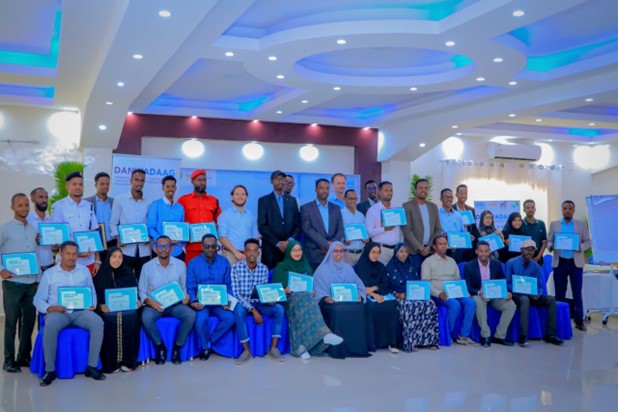From January 29 to February 1, 2024, the DANWADAAG programme organized a workshop on crisis communication in Hargeisa, Somaliland. Within the DANWADAAG programme, we work daily on improving the social contract between communities and local government through inclusive Disaster Risk Management. While the programme often focuses on disaster preparedness, it is unfortunate that disasters are not always avoidable. During the three-day training led by Crisis Communication Expert Wouter Jong, we explored how public leaders should respond when their district is affected by a disaster.
In times of emergency, communication becomes paramount as it serves as the steppingstone for conveying critical information to residents, the public, and the media. The ability to coordinate, and disseminate messages effectively ensures that vital information reaches those who need it most, fostering a sense of preparedness and resilience within communities.
In order to improve their ability to communicate effectively in times of crisis, VNG International, through its DANWADAAG Programme, brought together 42 (8 female) participants, comprising the mayors of four municipalities: Hargeisa, Burao, Berbera, and Borama; as well as, the technical staff and senior officials of key disaster risk management stakeholders including; National Disaster Preparedness and Food Reserve (NADFOR), Association of Somaliland Local Governments (ALGASL) and the Somaliland Fire Brigade.
A key focus of the workshop was on crisis communication planning, recognizing its importance as a supplementary component of the overall emergency management process. Jong, a senior expert in crisis communications from the Hague, engaged with the mayors and senior public officials for day one of the trainings, while day two and three focused on equipping technical staff with the critical skills in communication and coordination for emergency response.  Participants delved into strategies for communicating with residents and stakeholders in a manner that fosters understanding, reduces fear, and mitigates panic during crises. Through simulations sestons, participants gained valuable insights into how best to convey information to residents and stakeholders.
Participants delved into strategies for communicating with residents and stakeholders in a manner that fosters understanding, reduces fear, and mitigates panic during crises. Through simulations sestons, participants gained valuable insights into how best to convey information to residents and stakeholders.
Moreover, the workshop underscored the significance of establishing credibility before, during, and after an emergency or crisis. Participants learned how to develop communication plans that not only address the immediate needs of the community but also prioritize transparency and accountability, thereby instilling trust and legitimacy in local authorities. Through effective communication, local authorities can not only provide clarity amidst chaos but also demonstrate their unwavering commitment to addressing the situation promptly and efficiently.
The main takeaway from the three-day workshop discussions, was that the participants agreed to the establishment of an "Emergency Command Center" to serve as the focal point for all coordination and communication in times of crisis.

Author: Mohamed Dubbe

